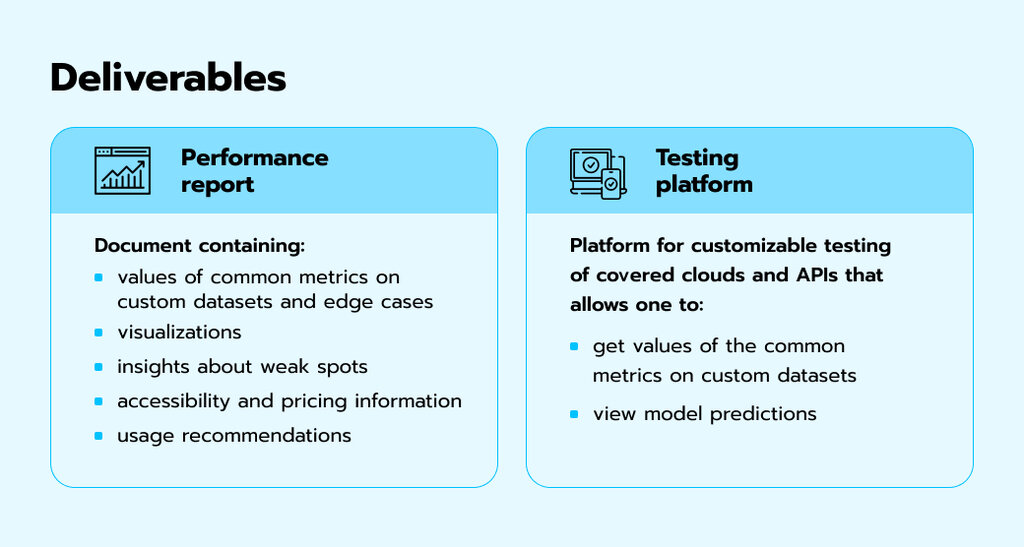Company Insight
Sponsored by Avenga
Why the right cloud is key to leveraging AI in pharma
Olena Domanska, Avenga’s Data Science Engineering Manager, discusses how Avenga’s Cloud Companion can help pharma organizations choose the most suitable cloud platform to support their AI initiatives.
Main image credit:
You’ve likely seen the headlines screaming about AI’s impact on the pharmaceutical industry. While there’s a lot of hype and noise surrounding this topic, the claims about AI’s potential to transform drug discovery, development, and patient care are true. These algorithms are not only accelerating timelines but also enhancing the precision of pharmaceutical efforts.
Recent regulatory changes are also significantly advancing AI proliferation in the sector. The EU has ICH M7 regulation that supports the use of in silico and synthetic-derived insights, while the FDA recognizes real-world evidence in single-arm trials for rare diseases. Combined with recent advancements in MLOps and DataOps, these developments create an ideal environment for AI-driven drug discovery.

Olena Domanska, Data Science Engineering Manager at Avenga
Historically, the drug discovery process has been notoriously slow, often taking over a decade from initial discovery to market approval. However, AI could dramatically reduce this timeline. For example, McKinsey estimates with the proper use of AI, organizations can have drugs and go from discovery to treatment in just one-tenth of the time.
This acceleration allows pharmaceutical companies to bring essential therapies to market more quickly, addressing urgent medical needs where current treatments may be inadequate or nonexistent.
AI’s advantage lies in its ability to analyze vast datasets in ways that human researchers simply cannot. By leveraging AI for tasks like predictive modeling and biomarker identification, companies can uncover novel drug candidates and optimize clinical trials. AI processes data from sources such as electronic health records, wearable devices, and clinical studies to identify patterns that inform drug development strategies, revealing insights previously hidden in complex datasets.
It also holds the potential to advance personalized medicine. By synthesizing data from genetic profiles and patient histories, AI can recommend personalized treatment regimens. This move toward precision medicine enables pharmaceutical companies to more efficiently identify the right drugs for patients, as well as determine optimal doses, treatment sequences, and the best timing for interventions.
Despite all this potential, companies often hesitate to scale AI initiatives beyond initial pilot projects, limiting their broader impact. Experts argue that elevating expertise levels, gaining access to and understanding powerful infrastructural technologies that underpin these models, and shifting mindsets supported by leadership are critical for embedding AI into R&D and other pharma workflows.
Choosing the right cloud is one of the first pieces of the puzzle
One of the primary challenges pharma companies face when adopting AI is selecting the right cloud platform. While most providers offer comparable services for storing vast datasets and scaling compute resources, the true differentiation lies in their proprietary AI capabilities. These models vary significantly in how they handle specific tasks, making it essential for pharmaceutical companies to evaluate how well these platforms align with their unique needs. For example, cloud providers differ in how their AI models address real-world complexities such as recognizing text in images. Capabilities like supporting handwritten text, handling diverse languages, managing various image formats, and processing challenging text scenarios (e.g., small, angled, or multi-colored fonts) are critical considerations. These nuances directly impact how effectively AI can be applied to tasks like drug discovery, diagnostics, or patient engagement.
Another critical factor is the integration of AI models into existing workflows. While some providers may excel in offering advanced AI tools like natural language processing or image recognition, their usability can vary based on the complexity of their deployment, technical expertise required, or limitations in addressing industry-specific use cases. For pharmaceutical companies, this means evaluating not just the presence of AI tools but also their practical application and relevance to specific projects.
This is where a tool like Avenga’s AI Cloud Companion comes into play. Its primary goal is to ensure that the cloud service performs precisely as needed, focusing on the effectiveness of AI capabilities rather than generic infrastructure metrics. The AI Cloud Companion helps companies assess the real-world performance of proprietary AI models and their suitability for industry-specific tasks.
For instance, Avenga’s AI Cloud Companion evaluates how well a platform supports key functionalities like multi-language text recognition, image analysis, and other advanced AI use cases. By defining the specific tasks and data types involved in a project, pharma organizations can rely on Avenga’s scoring system to compare cloud providers and select the best fit for their needs. This approach ensures that the chosen platform not only meets technical and regulatory requirements but also delivers meaningful outcomes for AI initiatives.
Key benefits of using AI Cloud Companion
To maximize the impact of AI in the pharmaceutical industry, companies should focus on these critical factors when selecting a cloud platform:
- Evaluation of AI model capabilities. A detailed assessment of proprietary AI models ensures they can handle industry-specific challenges, such as processing diverse data types or recognizing text in varied formats and languages.
- Compliance and security. Adherence to stringent regulations like GDPR and HIPAA is non-negotiable, particularly when handling sensitive patient data or clinical research findings.
- Seamless integration. The ability to integrate AI tools with existing workflows, data sources, and APIs minimizes disruption and accelerates R&D efforts.
- Alignment with use cases. The platform’s AI capabilities must align with specific project goals, from drug discovery to diagnostics and patient care innovation.

Avenga’s AI Cloud Companion addresses these factors, empowering organizations to navigate the complexities of cloud platform selection and maximize the value of their AI investments. By focusing on the real-world application of AI tools, pharma companies can drive innovation, streamline operations, and achieve meaningful results.
Avenga’s overall AI capabilities
Avenga’s AI approach in the pharmaceutical industry is rooted in a blend of technical expertise and an understanding of the unique challenges healthcare and life sciences organizations face. The team specializes in applying AI technologies—ranging from conventional ML algorithms to generative AI and advanced robotics—to deliver highly specialized solutions that drive innovation and improve efficiency.
The company is deeply attuned to the nuances of pharmaceutical R&D, clinical trials, patient care, and regulatory compliance, using AI to streamline processes, optimize decision-making, and enhance workflows. Whether advancing data analysis through image segmentation for clinical trials or incorporating AI into robotics for IVF treatments, they ensure that the solutions they provide are scalable and adaptable to meet the sector's evolving needs.
Conclusion
As AI continues to reshape the pharmaceutical landscape, its potential to revolutionize research, drug development, patient care, and operational efficiency is increasingly evident. With ongoing technological advancements, the impact of AI on the pharmaceutical industry will only grow.
By embracing AI, pharma companies can unlock new opportunities, drive innovation, and ultimately improve patient outcomes. Using AI Cloud Companion could be the first step in helping them build a massive competitive advantage.
Check out the AI Cloud Companion page.
